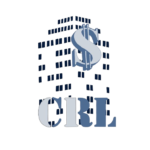
What is Commercial
Real Estate Lending?
CRE Lending refers specifically to Credit that is extended to finance or refinance property that is owned for the purpose of conducting commercial activity.
Commercial real estate (CRE) refers to any income-producing real estate that is used for business purposes, such as industrial warehouses, offices, retail plazas, hotels, and multi-family apartment buildings.
KEY TAKEAWAYS
- A CRE loan is a mortgage secured by a lien on a commercial property.
- CRE loans are generally made to investors such as corporations or organizations that own and operate commercial real estate.
- CRE loans are offered by banks, independent lenders, insurance companies, pension funds, private investors, and other capital sources, such as the U.S. Small Business Administration’s 504 Loan Program.
- Lenders consider the nature of the subject property being financed, the creditworthiness of the borrower, and financial ratios when evaluating commercial real estate loans.
Types of Commercial Real Estate Loans
Real estate lending can take on many forms. But in general, there are four categories of commercial real estate loans:
Owner–Occupied Commercial Mortgages
This is where the property serving as collateral is occupied by an operating company. The mortgage is serviced using the operating company’s cash flow.
Income-Producing Commercial Mortgages
Borrowers are investors; they own property that is occupied by third-party, arms’ length tenants. Cash flow to service loan obligations comes from the tenants’ rental payments.
Construction Loans
Construction finance is a very specialized type of commercial real estate lending. Borrowing is extended to support the development and redevelopment of physical buildings, in advance of realizing potential cash flow.
Credit is advanced in stages (sometimes called “progress draws”) based on project milestones. Repayment typically comes from either the proceeds of property sale or it is “taken out” by one of the two commercial mortgages we covered earlier.
Bridge Loans
These tend to be a higher risk type of CRE loan; they serve as a “bridge” between more traditional forms of credit.
For example, a development project is completed, and the construction loan comes due. But maybe there’s a 6-month delay in getting the building tenanted so that the commercial mortgage lender won’t advance funds. This developer would need bridge financing to “take out” the construction loan while he or she waits for tenancy (and occupancy) so the commercial mortgage can advance.
Types of Commercial Real Estate Lenders
The best way to understand CRE lending is to put them into one of two big categories. The first is cash flow lending; the second is equity lending.
Cash Flow Lenders
Cash flow lenders, as the title suggests, care about cash flow. They employ what’s often called a bottom-up approach to underwriting; this means they start with net operating income (for investment properties) or net income/EBITDA (for owner-occupied properties). The property will serve as collateral; however, the property’s value is somewhat secondary to the borrower’s ability to clearly service debt obligations. Cash flow lenders are often called “A” or “prime” lenders, not because they’re better at lending, but because their sources of capital tend to be less expensive, so they get to pick through the best deals (i.e. strong cash flow and prime locations). Most commercial banks, credit unions, and other large financial services firms (like insurance companies, pension funds, etc.) tend to play in the “A” space.
Equity Lenders
Equity lenders, often called “B” or “sub-prime” lenders, also like cash flow; however, they tend to do deals with less certainty around future cash generation. Many equity lenders are non-bank firms, so they have to pay a return to investors in exchange for the funds they lend out. Since their cost of funds is higher than a bank, they have to charge more in order to make a solid spread. Equity lenders, as a result, tend to take on riskier deals.
“Risk” manifests as higher LTVs, second charges, properties outside of “prime” urban cores, more bridge loans, etc. Equity lenders are very reliant on the property’s highest and best use value in the event they need to take enforcement action against the borrower and the collateral.
APPLY NOW

©2024 Commercial Realty Lending. | All Rights Reserved.


